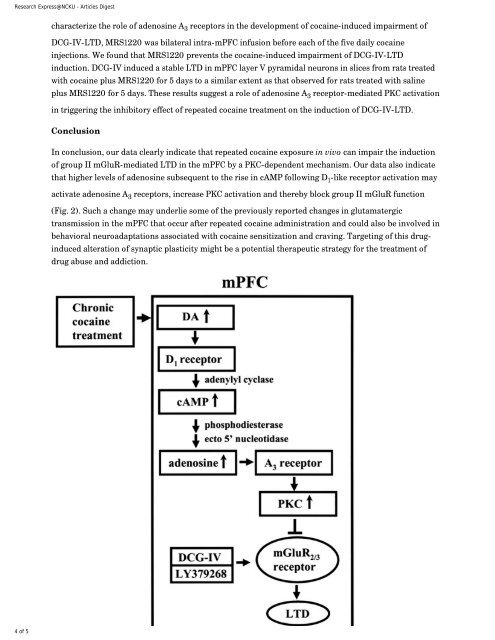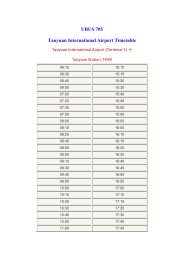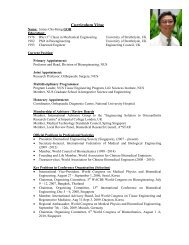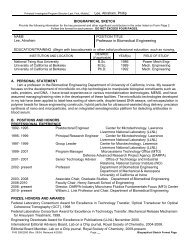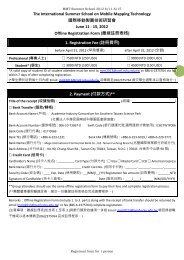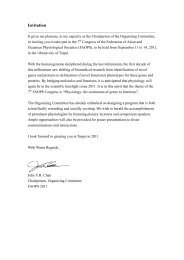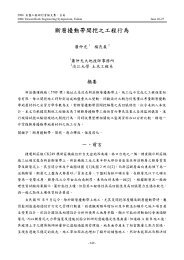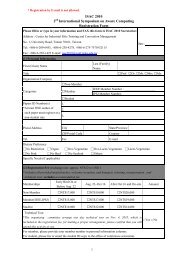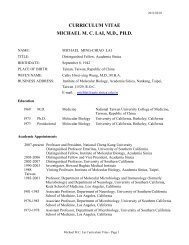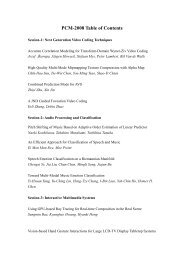Research Express@NCKU - Articles Digest
Research Express@NCKU - Articles Digest
Research Express@NCKU - Articles Digest
You also want an ePaper? Increase the reach of your titles
YUMPU automatically turns print PDFs into web optimized ePapers that Google loves.
<strong>Research</strong> <strong>Express@NCKU</strong> - <strong>Articles</strong> <strong>Digest</strong>characterize the role of adenosine A 3 receptors in the development of cocaine-induced impairment ofDCG-IV-LTD, MRS1220 was bilateral intra-mPFC infusion before each of the five daily cocaineinjections. We found that MRS1220 prevents the cocaine-induced impairment of DCG-IV-LTDinduction. DCG-IV induced a stable LTD in mPFC layer V pyramidal neurons in slices from rats treatedwith cocaine plus MRS1220 for 5 days to a similar extent as that observed for rats treated with salineplus MRS1220 for 5 days. These results suggest a role of adenosine A 3 receptor-mediated PKC activationin triggering the inhibitory effect of repeated cocaine treatment on the induction of DCG-IV-LTD.ConclusionIn conclusion, our data clearly indicate that repeated cocaine exposure in vivo can impair the inductionof group II mGluR-mediated LTD in the mPFC by a PKC-dependent mechanism. Our data also indicatethat higher levels of adenosine subsequent to the rise in cAMP following D 1 -like receptor activation mayactivate adenosine A 3 receptors, increase PKC activation and thereby block group II mGluR function(Fig. 2). Such a change may underlie some of the previously reported changes in glutamatergictransmission in the mPFC that occur after repeated cocaine administration and could also be involved inbehavioral neuroadaptations associated with cocaine sensitization and craving. Targeting of this druginducedalteration of synaptic plasticity might be a potential therapeutic strategy for the treatment ofdrug abuse and addiction.4 of 5


